Building a Nation - an Interactive British AAR
- Thread starter unmerged(260001)
- Start date
-
We have updated our Community Code of Conduct. Please read through the new rules for the forum that are an integral part of Paradox Interactive’s User Agreement.
You are using an out of date browser. It may not display this or other websites correctly.
You should upgrade or use an alternative browser.
You should upgrade or use an alternative browser.
- Status
- Not open for further replies.
God Damn I was too late I was intending to vote for the first time, I would have gone with the Libs.
God Damn I was too late I was intending to vote for the first time, I would have gone with the Libs.
Despite the final results I still slapped my forehead reading this. I think I just voted for the Liberals for the final time. We shall see.
Might I persuade you to consider the plight of your fellow man and vote Labour next time around, then?I think I just voted for the Liberals for the final time. We shall see.
The Liberals will be back!
I'm sure Lloyd George said the same thing.
OK. I'm just uploading the pics for the next update and though I'd explain how things are going to go. We're probably not going to have an election this week. :/
This is part 1 of 2 for the 4th Parliament. After that there will be a special update about one specific event abroad. Then I think I'll do a rotw summary or something and then we can have an election. Okay.
BTW, the awesome parts of Disraeli's government are probably in the prt 2.
This is part 1 of 2 for the 4th Parliament. After that there will be a special update about one specific event abroad. Then I think I'll do a rotw summary or something and then we can have an election. Okay.
BTW, the awesome parts of Disraeli's government are probably in the prt 2.
After that there will be a special update about one specific event abroad.
A party in Crimea, perhaps?
The Fourth Parliament – 1851-1858 (Part 1)
The Disraeli administration of the 4th Parliament is often remembered as one of the greatest in the early history of the British Republic. Unprecedented economic prosperity and political stability might have made any government a success. But Disraeli was first and foremost a foreign affairs Prime Minister and under his tenure Britain was transformed from a buccaneer power – acquiring colonies and trading influence on an ad-hoc basis – into Great European Power. For better or for worse Britain thoroughly entrenched itself in the affairs of the continent, ending the isolation of the Whigs and Liberals. In the field of politics the 4th Parliament appeared to be a sort of quiet before the storm – whilst in 1851 there had been a real danger of rapid radicalisation and violence things calmed during this period. However by the end of the Parliament even more vigorous social tensions were already bursting towards the surface.
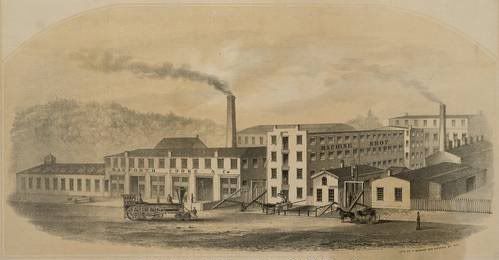
Whilst often overlooked by historians who prefer to focus on the geopolitical changes that Britain experienced during the period the economy was the field where the Disraeli government met its greatest successes. Whilst still encouraging investment from private interests the government made some small interventions. A tariff was placed on imported goods (this ranged from 7%-12% during the period) which protected the more fragile industries from foreign competition – the arms industry had previously been losing out to Prussian imports whilst the furniture industry had also faced competition from France. Some industries were granted state subsidies – again it was mostly struggling manufacturers of armaments and some consumer goods who received the subsidies – but this allowed the state to help keep some factories open whilst other ones were reopened (as in Ireland and the Highlands). The state also provided support for further investment in the expansion of some industries – this program was mostly focussed on Ireland but also benefitted some of the more industrial areas of the British mainland.
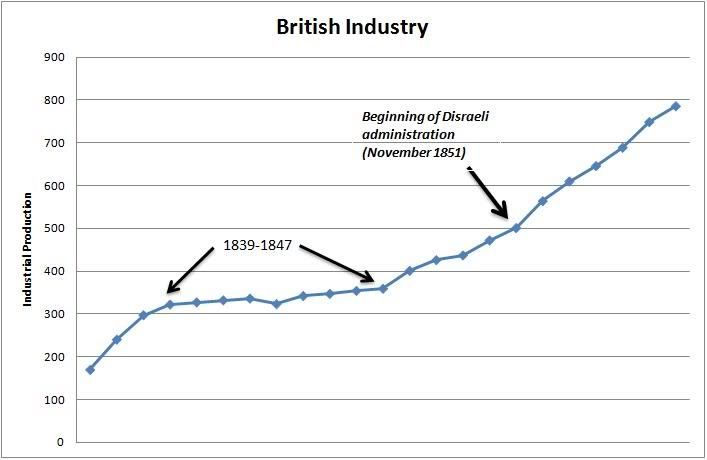
All this contributed to the economic boom that saw industrial growth speed up noticeably as production increased by 60% over the Parliament. The greatest successes of the new economic policy were in Ireland. By the end of the administration Cork and Dublin’s manufactories dwarfed those of Belfast (which only a few years ago produced industrial goods than the rest of Ireland combined) and could rival some of the highly industrialised regions of the British mainland – however there remained a significant degree of unemployment (especially in Leinster and Connacht), more so than anywhere else Ireland was experiencing a flood or rural-urban migration. The simple fact was that by this period Irish agriculture had reached a critical mass where it could no longer support any more people without a famine occurring, however technological advances were causing a population boom. Thousands of Irish men and women were therefore left with the simple decision to make – emigrate or head for the city. With government sponsored factories sprouting up in the cities the choice of staying in Ireland was made more attractive than it had been in the past.
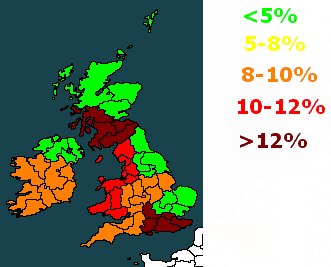
In terms of regions the increasingly rapid industrial growth in some areas was starting to contrast sharply with those parts of the country which had not experienced the same rapid growth. Many believed that government might in the future have to intervene in order to encourage industrial expansion in these areas of the country.
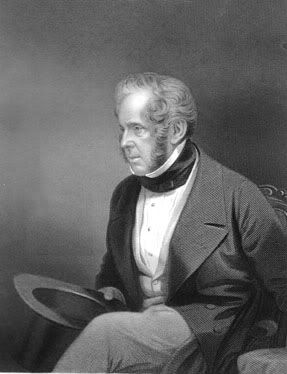
But it was in foreign affairs where British policy radically changed during Disraeli’s government. Strangely, the first great diplomatic shift was not champion by a Tory but by a Liberal. Lord Palmerston had been Chancellor of the Exchequer only a short while before and now held one the most prominent positions within the British cabinet – Foreign Secretary. It was he who developed the so called ‘’BADF Doctrine’’. This idea summed up the primary aims of British foreign policy as – Befriend America, Destroy France. This essentially entailed that Britain should do everything she could to improve her relationship with the USA whilst at the same time undermining French power at every opportunity. In order to proceed with the latter, more pressing, aim Britain would become deeply involved in the affairs of the continent.
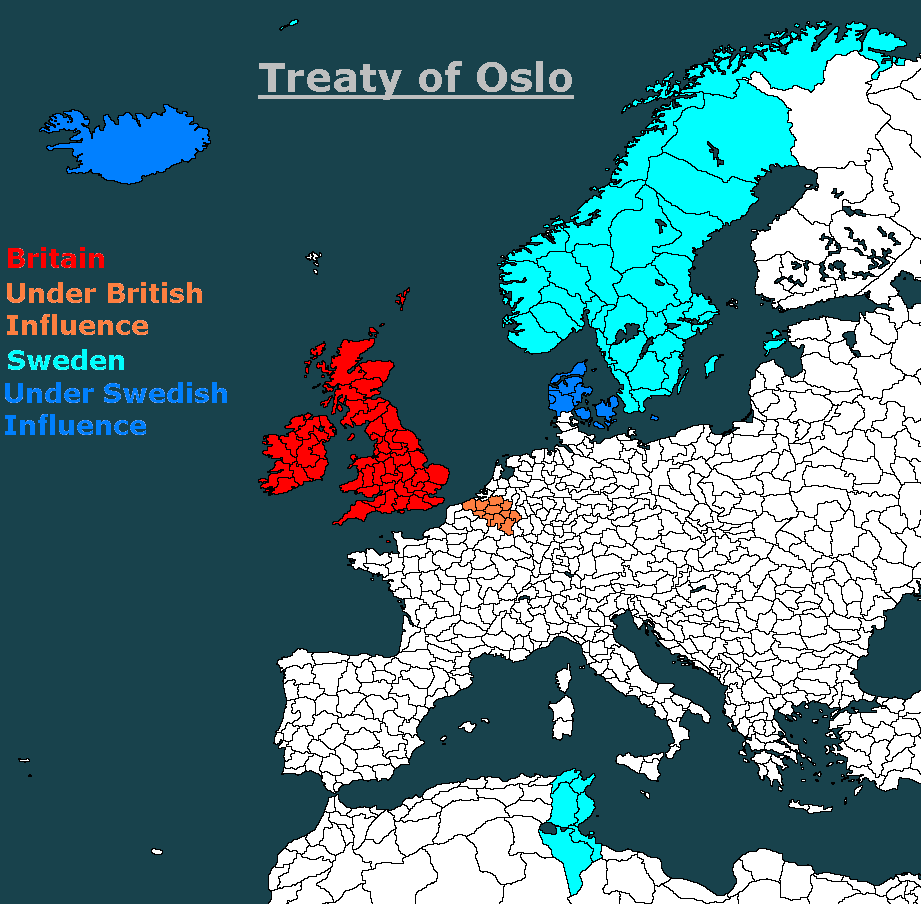
In March 1852 Britain signed the Treaty of Oslo. The Treaty brought Britain and Sweden together into an alliance as well as Belgium (which had recently come under British influence) and Denmark (since the loss of its lands in Germany largely under Swedish influence). The four-way alliance massively increased Britain’s influence in Europe. Belgium had long been the centre of French desires – so blocking of their influence here was a major blow, meanwhile Sweden did not only offer the support of a major military and economic power in Europe it also controlled Tunisia – only a short distance from metropolitan France and bordering France’s most important colony in Algeria.
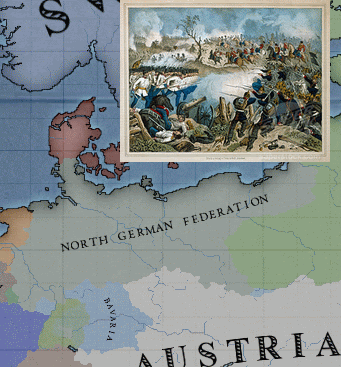
Within a short time Britain’s new involvement in the continent would be put to the test. In a lightening quick campaign over the summer of 1852 Prussia (fighting without its North German allies) crushed the combined might of Austria and the South German states. The war started when Prussian troops overran the Habsburg ruled Duchy of Schleswig, Prussian armies would go on to defeat a Badanese invasion of the Rhineland, a Bavarian assault on Saxony and an Austrian invasion of Silesia before they launched their own assault deep into Bohemia. Faced with a potential catastrophe the Austrians surrendered Schleswig and their ambitions in the North. Victory secured and international prestige on the Prussia press ganged its allies in the North into forming the North German Federation – a Prussian dominated nation unifying the states under Prussian influence.
The response the NGF from the Great powers of the continent (Russia and France) was, as was expected, angry. Both felt threatened by the emergence of this new and powerful Prussian state and feared that it might upset the balance of power. Britain, however, went so far as to reach out the hand of friendship. Whilst stopping short of an alliance Britain made clear that she desired amiable relations with the NGF, regarding it as the most important continental bulwark against French power in the West and Russian power in the East – better yet it was a thoroughly Protestant power that could oppose the old Catholic Empires in Vienna and Paris.
In Ireland the government’s policies came within an inch of causing disaster. With new factories opening and a greater presence of British soldiers in Ireland Britain was visibly exerted serious influence on the island. At the same time much greater structural changes were taking place that would centralised Irish government (which had remained semi-independent since the annexation) to Westminster. The Irish police force was restricted as the RIC (Republican Irish Constabulary) with a British born leadership, local government was restructured to resemble Britain, much of the old apparatus of government under the Irish Republic and the independent Irish Parliament (prior to the Union at the start of the century) before it that had for so long remained in Dublin was gradually emasculated as its powers and funding were stripped away. In response to this the Irish Republican Brotherhood (IRB) was founded in 1852 with close links to the radical wing of the IPP.
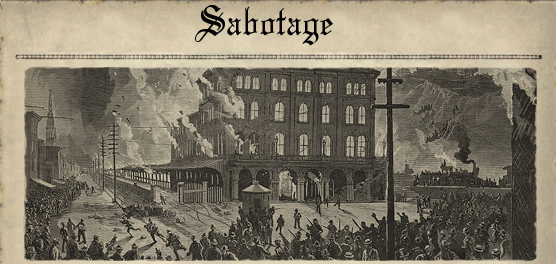
Starting in late 1852 the IRB began a low level campaign against symbols of British rule. This led to the bombing of a factory in Galway, the murder of 9 policemen across the country and 4 soldiers as well as the robbing of the Bank of Ireland in Sligo. A small scale campaign but one that the British press quickly seized upon – calling for tough action.
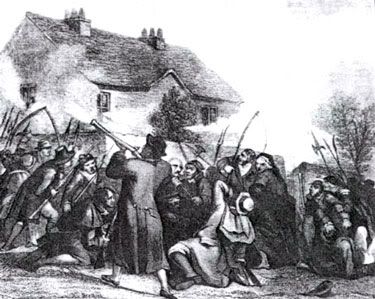
In the summer of 1853 British officials in Ireland discovered the headquarters of the IRB – in a small town near Limerick. Believing that the IRB men would almost certainly be armed instead of the police a detachment of 50 soldiers was dispatched. Upon seeing the soldiers the IRB men fortified the town and prepared to resist. They were much more numerous than the British had expected (upwards of 100 armed men) and proved more than a match for the tiny force of British soldiers. After losing more than a dozen men the British commander requested heavy support and reinforcements. By the end of the day there were several hundred British soldiers around the town – equipped with artillery. Shelling the town into the ground the IRB was left shattered. 29 British soldiers died whilst some 303 Irish died – it us unknown how many of those killed were IRB and how many were civilians.
Faced with a backlash from the radicals in the IPP the British government moved to arrest William O’Brien and several other IPP members who were suspected of involvement with the IRB (various documents were presented ‘proving’ their links and their involvement in IRB attacks). O’Brien was forced to resign from Parliament and was imprisoned in England.
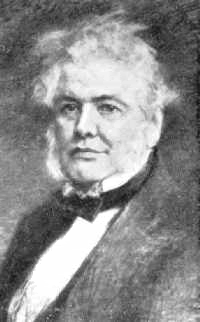
Rather than drift to a radical response to the violence in Ireland the IPP elected Isaac Butt as its new leader. Butt was very much a moderate and even encouraged British investment in Ireland – seeing the economic benefit it was bringing to the country. Butt also articulated the demands of the IPP much better than his predecessors as he called for ‘Home Rule’ in Ireland. In essence this meant the restoration of the Dáil and the protection of Irish governmental institutions, but not full blown independence (although most regarded Home Rule as a stepping stone to a new Irish Republic).

Over the course of the first few years of the government a new policy of military expansion took place. With an ever growing Empire to protect and now new obligations in Europe British Generals had warned the government that without a significant campaign to expand the size of the armed forces there was a risk that Britain might find herself wanting on the battlefield. With a plentiful surplus in the budget Disraeli poured a significant amount of money into the military expansion which led the recruitment of an additional 50,000 men as well as the modernisation of the transport fleet.
In 1853 Korea agreed to accept several measures of British trading dominance and one year later Travancore, in the Southern tip of India, did likewise.

In 1853 the British were presented with an opportunity to employ the BADF Doctrine to its fullest extent. After the collapse of the British Empire in the 1830s Quebec became a self governing French colony – just as the Québécois had long desired. However, it did not take long for trouble in paradise to emerge. Neglectful governance, high taxes, the maintenance of a rather large military presence (mostly naval but there were also 20,000 troops stationed in Quebec) and the repeated refusal for the Royalist government to give Quebec any representation in the National Assembly had all alienated the people of the colony from Paris.
In 1853 the Québécois Assembly voted unilaterally to secede from France. Armed rebels arrested the commanders of the French garrison in the country and forced them to board their ships and return home. Unwilling to fight their fellow Frenchmen the troops agreed to peacefully withdraw. Upon returning to France an irate Louis Philippe II had the commander executed and vowed to send an army to restore his rule in Quebec. Rather than bow to this threat Quebec appointed one of its own King of Quebec in an outright provocation against the French King.
It was at this moment that the British intervened, having encouraged the Québécois for some time. The British reached a secret agreement with the US, in return for backing the British in the coming standoff with the French Britain would essentially hand Quebec over to the American sphere of influence. Eager to secure this part of their Northern border the Americans agreed. The British then proceeded to set up a cordon around the Atlantic Territories that would block any ships from reaching Quebec and warned that no foreign military vessels would be allowed to pass through. Faced with the option of either abandoning his hopes of reclaiming Quebec or facing a war with Britain over what was by this stage a lost cause Louis Philippe II gave in. Quebec would be independent and France was humiliated!
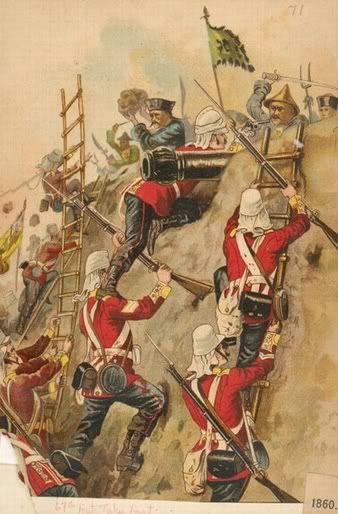
On a high from diplomatic triumph in North America Disraeli decided to bow to the ambitious colonial lobby (a lobby he himself was a part of) and launch a campaign to claim new lands for Britain. The target was the wealthy Empire of Annam. Some 36,000 men and a large number of warships were sent to Indochina for the war in the spring of 1854. Every single major port in the country was blockaded whilst British troops landed in Cochinchina near the city of Saigon.
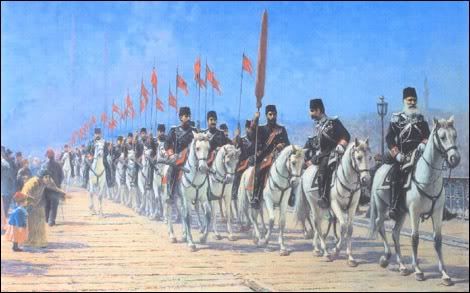
Then, with so much of Britain’s available military engaged in the Far East, news reached London of events in the Maghreb. With French backing, although not in alliance with them, the Ottoman Empire had invaded Swedish Tunisia. Called upon to help defend her ally Britain declared war, as did Denmark and Belgium. Britain was to march to war against one of Europe’s most powerful Empires.
To be continued ...
The Disraeli administration of the 4th Parliament is often remembered as one of the greatest in the early history of the British Republic. Unprecedented economic prosperity and political stability might have made any government a success. But Disraeli was first and foremost a foreign affairs Prime Minister and under his tenure Britain was transformed from a buccaneer power – acquiring colonies and trading influence on an ad-hoc basis – into Great European Power. For better or for worse Britain thoroughly entrenched itself in the affairs of the continent, ending the isolation of the Whigs and Liberals. In the field of politics the 4th Parliament appeared to be a sort of quiet before the storm – whilst in 1851 there had been a real danger of rapid radicalisation and violence things calmed during this period. However by the end of the Parliament even more vigorous social tensions were already bursting towards the surface.

Whilst often overlooked by historians who prefer to focus on the geopolitical changes that Britain experienced during the period the economy was the field where the Disraeli government met its greatest successes. Whilst still encouraging investment from private interests the government made some small interventions. A tariff was placed on imported goods (this ranged from 7%-12% during the period) which protected the more fragile industries from foreign competition – the arms industry had previously been losing out to Prussian imports whilst the furniture industry had also faced competition from France. Some industries were granted state subsidies – again it was mostly struggling manufacturers of armaments and some consumer goods who received the subsidies – but this allowed the state to help keep some factories open whilst other ones were reopened (as in Ireland and the Highlands). The state also provided support for further investment in the expansion of some industries – this program was mostly focussed on Ireland but also benefitted some of the more industrial areas of the British mainland.

All this contributed to the economic boom that saw industrial growth speed up noticeably as production increased by 60% over the Parliament. The greatest successes of the new economic policy were in Ireland. By the end of the administration Cork and Dublin’s manufactories dwarfed those of Belfast (which only a few years ago produced industrial goods than the rest of Ireland combined) and could rival some of the highly industrialised regions of the British mainland – however there remained a significant degree of unemployment (especially in Leinster and Connacht), more so than anywhere else Ireland was experiencing a flood or rural-urban migration. The simple fact was that by this period Irish agriculture had reached a critical mass where it could no longer support any more people without a famine occurring, however technological advances were causing a population boom. Thousands of Irish men and women were therefore left with the simple decision to make – emigrate or head for the city. With government sponsored factories sprouting up in the cities the choice of staying in Ireland was made more attractive than it had been in the past.

In terms of regions the increasingly rapid industrial growth in some areas was starting to contrast sharply with those parts of the country which had not experienced the same rapid growth. Many believed that government might in the future have to intervene in order to encourage industrial expansion in these areas of the country.

But it was in foreign affairs where British policy radically changed during Disraeli’s government. Strangely, the first great diplomatic shift was not champion by a Tory but by a Liberal. Lord Palmerston had been Chancellor of the Exchequer only a short while before and now held one the most prominent positions within the British cabinet – Foreign Secretary. It was he who developed the so called ‘’BADF Doctrine’’. This idea summed up the primary aims of British foreign policy as – Befriend America, Destroy France. This essentially entailed that Britain should do everything she could to improve her relationship with the USA whilst at the same time undermining French power at every opportunity. In order to proceed with the latter, more pressing, aim Britain would become deeply involved in the affairs of the continent.

In March 1852 Britain signed the Treaty of Oslo. The Treaty brought Britain and Sweden together into an alliance as well as Belgium (which had recently come under British influence) and Denmark (since the loss of its lands in Germany largely under Swedish influence). The four-way alliance massively increased Britain’s influence in Europe. Belgium had long been the centre of French desires – so blocking of their influence here was a major blow, meanwhile Sweden did not only offer the support of a major military and economic power in Europe it also controlled Tunisia – only a short distance from metropolitan France and bordering France’s most important colony in Algeria.

Within a short time Britain’s new involvement in the continent would be put to the test. In a lightening quick campaign over the summer of 1852 Prussia (fighting without its North German allies) crushed the combined might of Austria and the South German states. The war started when Prussian troops overran the Habsburg ruled Duchy of Schleswig, Prussian armies would go on to defeat a Badanese invasion of the Rhineland, a Bavarian assault on Saxony and an Austrian invasion of Silesia before they launched their own assault deep into Bohemia. Faced with a potential catastrophe the Austrians surrendered Schleswig and their ambitions in the North. Victory secured and international prestige on the Prussia press ganged its allies in the North into forming the North German Federation – a Prussian dominated nation unifying the states under Prussian influence.
The response the NGF from the Great powers of the continent (Russia and France) was, as was expected, angry. Both felt threatened by the emergence of this new and powerful Prussian state and feared that it might upset the balance of power. Britain, however, went so far as to reach out the hand of friendship. Whilst stopping short of an alliance Britain made clear that she desired amiable relations with the NGF, regarding it as the most important continental bulwark against French power in the West and Russian power in the East – better yet it was a thoroughly Protestant power that could oppose the old Catholic Empires in Vienna and Paris.
In Ireland the government’s policies came within an inch of causing disaster. With new factories opening and a greater presence of British soldiers in Ireland Britain was visibly exerted serious influence on the island. At the same time much greater structural changes were taking place that would centralised Irish government (which had remained semi-independent since the annexation) to Westminster. The Irish police force was restricted as the RIC (Republican Irish Constabulary) with a British born leadership, local government was restructured to resemble Britain, much of the old apparatus of government under the Irish Republic and the independent Irish Parliament (prior to the Union at the start of the century) before it that had for so long remained in Dublin was gradually emasculated as its powers and funding were stripped away. In response to this the Irish Republican Brotherhood (IRB) was founded in 1852 with close links to the radical wing of the IPP.

Starting in late 1852 the IRB began a low level campaign against symbols of British rule. This led to the bombing of a factory in Galway, the murder of 9 policemen across the country and 4 soldiers as well as the robbing of the Bank of Ireland in Sligo. A small scale campaign but one that the British press quickly seized upon – calling for tough action.

In the summer of 1853 British officials in Ireland discovered the headquarters of the IRB – in a small town near Limerick. Believing that the IRB men would almost certainly be armed instead of the police a detachment of 50 soldiers was dispatched. Upon seeing the soldiers the IRB men fortified the town and prepared to resist. They were much more numerous than the British had expected (upwards of 100 armed men) and proved more than a match for the tiny force of British soldiers. After losing more than a dozen men the British commander requested heavy support and reinforcements. By the end of the day there were several hundred British soldiers around the town – equipped with artillery. Shelling the town into the ground the IRB was left shattered. 29 British soldiers died whilst some 303 Irish died – it us unknown how many of those killed were IRB and how many were civilians.
Faced with a backlash from the radicals in the IPP the British government moved to arrest William O’Brien and several other IPP members who were suspected of involvement with the IRB (various documents were presented ‘proving’ their links and their involvement in IRB attacks). O’Brien was forced to resign from Parliament and was imprisoned in England.

Rather than drift to a radical response to the violence in Ireland the IPP elected Isaac Butt as its new leader. Butt was very much a moderate and even encouraged British investment in Ireland – seeing the economic benefit it was bringing to the country. Butt also articulated the demands of the IPP much better than his predecessors as he called for ‘Home Rule’ in Ireland. In essence this meant the restoration of the Dáil and the protection of Irish governmental institutions, but not full blown independence (although most regarded Home Rule as a stepping stone to a new Irish Republic).

Over the course of the first few years of the government a new policy of military expansion took place. With an ever growing Empire to protect and now new obligations in Europe British Generals had warned the government that without a significant campaign to expand the size of the armed forces there was a risk that Britain might find herself wanting on the battlefield. With a plentiful surplus in the budget Disraeli poured a significant amount of money into the military expansion which led the recruitment of an additional 50,000 men as well as the modernisation of the transport fleet.
In 1853 Korea agreed to accept several measures of British trading dominance and one year later Travancore, in the Southern tip of India, did likewise.

In 1853 the British were presented with an opportunity to employ the BADF Doctrine to its fullest extent. After the collapse of the British Empire in the 1830s Quebec became a self governing French colony – just as the Québécois had long desired. However, it did not take long for trouble in paradise to emerge. Neglectful governance, high taxes, the maintenance of a rather large military presence (mostly naval but there were also 20,000 troops stationed in Quebec) and the repeated refusal for the Royalist government to give Quebec any representation in the National Assembly had all alienated the people of the colony from Paris.
In 1853 the Québécois Assembly voted unilaterally to secede from France. Armed rebels arrested the commanders of the French garrison in the country and forced them to board their ships and return home. Unwilling to fight their fellow Frenchmen the troops agreed to peacefully withdraw. Upon returning to France an irate Louis Philippe II had the commander executed and vowed to send an army to restore his rule in Quebec. Rather than bow to this threat Quebec appointed one of its own King of Quebec in an outright provocation against the French King.
It was at this moment that the British intervened, having encouraged the Québécois for some time. The British reached a secret agreement with the US, in return for backing the British in the coming standoff with the French Britain would essentially hand Quebec over to the American sphere of influence. Eager to secure this part of their Northern border the Americans agreed. The British then proceeded to set up a cordon around the Atlantic Territories that would block any ships from reaching Quebec and warned that no foreign military vessels would be allowed to pass through. Faced with the option of either abandoning his hopes of reclaiming Quebec or facing a war with Britain over what was by this stage a lost cause Louis Philippe II gave in. Quebec would be independent and France was humiliated!

On a high from diplomatic triumph in North America Disraeli decided to bow to the ambitious colonial lobby (a lobby he himself was a part of) and launch a campaign to claim new lands for Britain. The target was the wealthy Empire of Annam. Some 36,000 men and a large number of warships were sent to Indochina for the war in the spring of 1854. Every single major port in the country was blockaded whilst British troops landed in Cochinchina near the city of Saigon.

Then, with so much of Britain’s available military engaged in the Far East, news reached London of events in the Maghreb. With French backing, although not in alliance with them, the Ottoman Empire had invaded Swedish Tunisia. Called upon to help defend her ally Britain declared war, as did Denmark and Belgium. Britain was to march to war against one of Europe’s most powerful Empires.
To be continued ...
Wow. BADF, Tunisia, economic boom, and you say that Disraeli hasn't even reached hs high point yet! This is going to be one hell of a Parliament. 
Oh dear. That's going to be big. VERY BIG, I mean.
Let's hope that it ends in the traditional way, that is, with France trashed, as usual


Let's hope that it ends in the traditional way, that is, with France trashed, as usual
Good to see that we provide jobs for our Irish brothers and sisters! It's no surprised that the Tories are doing, okay but we should just undermine France but also anyone who wants to compete with our supremacy!
A fascinating turn of events -- I've never seen Quebec declare independence before! Was that something you modded in?
What have i done to my beloved country
Turning it into an Empire?
- Status
- Not open for further replies.

